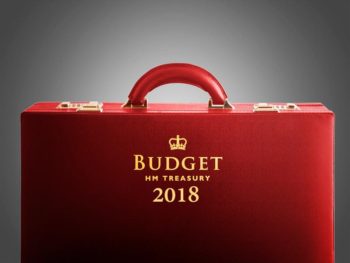Budget 2018: The main points for fleets
Philip Hammond has delivered his third Budget as chancellor, bringing in changes for areas including welfare and pensions but leaving a big hole when it came to clarity for the future shape of company car taxation.
The main changes for fleets were:
Taxation:
The chancellor failed to provide clarity on future company car tax (CCT) rates and how the switch to WLTP will be handled – despite calls from the industry.
Although the Government had been urged to outline how the higher CO2 figures from the switch to WLTP would be mitigated for CCT and VED, the Budget Red Book merely says: “The Government will review the impact of WLTP on Vehicle Excise Duty (VED) and company car tax (CCT) to report in the spring. WLTP aims to provide a closer representation of ‘real-world’ fuel consumption and CO2 emissions.”
Meanwhile there was no announcement of BiK tax bands beyond 2020/21.
The Red Book did reveal that from 1 April 2019 VED rates for cars, vans and motorcycles will increase in line with RPI. It also announced that the Government would publish a summary of responses from the consultation on VED reform for vans, which ran in the summer. The document – now published – sets out proposals to introduce environmental incentives from April 2021. Bands and rates will be announced ahead of Finance Bill 2019-20.
For more details and industry comment on how the lack of tax clarity hits fleets, click here.
Capital allowances:
A change in capital allowances for business cars with CO2 emissions of more than 110g/km has been announced with the 8% rate cut to 6% backdated to 1 April 2018. Legislation will be introduced in Finance Bill 2018/19 to the special rate of writing down allowance which will be changed from 8% to 6%. The Finance Bill will be published on Wednesday 7 November.
The two other thresholds for capital allowances on cars bought outright remain unchanged and are:
- Vehicles up to 50g/km (reduced from 75g/km): Companies can write down the full cost against their taxable profits
- Vehicles emitting 51-110g/km: Companies can write down 18% of the cost of the car against their taxable profits each year, on a reducing balance basis
Potholes and roads funding:
A £28.8bn National Roads Fund was announced. Paid for by road tax – for the first time ever – this includes £25.3bn for the Strategic Road Network (motorways, trunk and A roads); said to be the largest ever investment of this kind.
It will also help fund the new network of local roads (known as the Major Road Network), and larger local road projects.
Local authorities will receive £420 million to fix potholes on roads and renew bridges and tunnels, and there will be a £150 million to improve local traffic hotspots such as roundabouts.
For more details and industry comment on the funding, click here.
Fuel duty freeze confirmed:
The chancellor confirmed the continued fuel duty freeze, previously announced by Theresa May in her Tory conference speech.
It marks the ninth consecutive year that fuel duty will be frozen at 57.95 pence per litre and will cost the Exchequer £840m in lost revenues for the 2019/20 tax year while saving the average driver a cumulative £1,000 by April 2020 and more than £2,000 for the average van driver, according to government figures.
Elsewhere in the Budget Red Book, the Government announced that from 6 April 2019 fuel benefit charges will increase in line with RPI and the van benefit charge will increase in line with CPI.
For more details and industry comment on the fuel duty freeze, click here.
Tax relief for electric charge points:
The Government said it would extend the first-year allowance for electric charge-points for four years. This will extend such allowances until 31 March 2023 for corporation tax and 5 April 2023 for income tax purposes.
However, there were no changes to this month’s announcement that grants for plug-in hybrids have now been cut under a reformed system focused on increasing uptake of electric and hydrogen fuel cell vehicles. And there was also no announcement of an early introduction for the 2% company car tax rate for electric vehicles, despite the fleet industry having highlighted how this would help with government plans to increase ULEV uptake.
Mobility:
To support the Industrial Strategy Future of Mobility Grand Challenge, £90m from the National Productivity Investment Fund will be allocated to the Transforming Cities Fund to create Future Mobility Zones. This will trial new transport modes, services, and digital payments and ticketing. £20m of this will be allocated to the West Midlands
The chancellor also announced an additional £680m of funding for sustainable transport including buses, trams and cycling routes through the Government’s Transforming Cities Fund. This brings the total amount of funding available through the Transforming Cities Fund, which aims to support productivity and prosperity through investment in public and sustainable transport, to £2.4bn.
Budget 2017: Regulation changes to support driverless car tests - The government says it wants to see fully self-driving cars, without a human operator, on UK roads by 2021. For more of the latest industry news, ... Read More »
Budget 2017: Diesel tax hikes from next April - Diesel cars will be subject to increases in Vehicle Excise Duty and Company Car Tax from next April, confirmed in the 2017 Budget, as the Government ... Read More »
Budget 2017: Fuel duty freeze to remain in place - Fuel duty will remain frozen at 57.95 pence per litre from next April, the eighth successive year that rises have been cancelled, under plans announced during ... Read More »


















